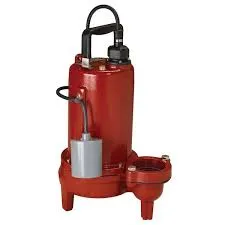English
- Afrikaans
- Albanian
- Amharic
- Arabic
- Armenian
- Azerbaijani
- Basque
- Belarusian
- Bengali
- Bosnian
- Bulgarian
- Catalan
- Cebuano
- Corsican
- Croatian
- Czech
- Danish
- Dutch
- English
- Esperanto
- Estonian
- Finnish
- French
- Frisian
- Galician
- Georgian
- German
- Greek
- Gujarati
- Haitian Creole
- hausa
- hawaiian
- Hebrew
- Hindi
- Miao
- Hungarian
- Icelandic
- igbo
- Indonesian
- irish
- Italian
- Japanese
- Javanese
- Kannada
- kazakh
- Khmer
- Rwandese
- Korean
- Kurdish
- Kyrgyz
- Lao
- Latin
- Latvian
- Lithuanian
- Luxembourgish
- Macedonian
- Malgashi
- Malay
- Malayalam
- Maltese
- Maori
- Marathi
- Mongolian
- Myanmar
- Nepali
- Norwegian
- Norwegian
- Occitan
- Pashto
- Persian
- Polish
- Portuguese
- Punjabi
- Romanian
- Russian
- Samoan
- Scottish Gaelic
- Serbian
- Sesotho
- Shona
- Sindhi
- Sinhala
- Slovak
- Slovenian
- Somali
- Spanish
- Sundanese
- Swahili
- Swedish
- Tagalog
- Tajik
- Tamil
- Tatar
- Telugu
- Thai
- Turkish
- Turkmen
- Ukrainian
- Urdu
- Uighur
- Uzbek
- Vietnamese
- Welsh
- Bantu
- Yiddish
- Yoruba
- Zulu
Telephone: +86 13120555503
Email: frank@cypump.com
Oct . 13, 2024 22:40 Back to list
Cost analysis of ejector pumps and related operational expenses for effective budgeting
The Cost of an Ejector Pump and Associated Expenses
Ejector pumps are essential pieces of equipment in various applications, particularly in wastewater management and sewage pumping. These pumps are designed to transfer fluids, particularly those containing solids, from one location to another. Understanding the costs associated with ejector pumps, along with their maintenance and operational expenses, is crucial for both residential and commercial property owners.
Initial Costs of Ejector Pumps
The initial purchase price of an ejector pump varies significantly based on several factors, including the pump's capacity, the material used in its construction, and the complexity of the installation required. On average, the cost of an ejector pump can range from $200 to $1,200, depending on its specifications. For residential applications, a simple unit might suffice, while commercial applications might demand more robust solutions that can handle larger volumes of waste.
In addition to the cost of the pump itself, it is important to factor in installation expenses. Hiring a licensed plumber or contractor for professional installation typically adds an additional $300 to $1,500 to the total cost, depending on the complexity of the installation and local labor rates. It’s crucial to ensure that the installation is carried out by a qualified professional, as improper installation can lead to premature failure or inefficiency.
Operating Expenses
Once installed, ejector pumps incur various operating expenses that need to be considered. The primary operational cost is electricity, as these pumps require power to function. An ejector pump's energy consumption can vary based on its size and operational duration, but on average, a typical unit may use between 500 to 1,500 watts per hour.
Property owners should also consider the frequency of use of the ejector pump. For those residing in areas with high rainfall or flooding, the pump may need to operate more frequently, leading to higher electric bills. It is advisable to consult with an electrician or a technician to assess the expected energy consumption based on your specific needs.
cost of an ejector pump and associated expenses for ...

Maintenance Costs
Regular maintenance is essential for prolonging the lifespan of an ejector pump and ensuring its efficiency. Most manufacturers recommend routine inspections and servicing at least once a year. Maintenance tasks may include checking the pump for clogs or obstructions, testing the electrical components, and ensuring that the discharge lines are clear.
The average cost of maintenance can range from $100 to $300 per visit, although this may vary based on the service provider and the pump's condition. Addressing minor issues promptly can prevent costly repairs down the line, emphasizing the importance of routine check-ups.
Replacement and Repair Costs
Over time, ejector pumps may encounter issues that necessitate repairs or complete replacement. Factors influencing repair costs include the type of pump, the extent of the damage, and labor rates. Typical repair costs can range from $150 to $800, depending on the complexity of the repair.
When it comes to replacement, property owners should be prepared for a significant investment. The total cost, including removal of the old pump and installation of a new one, can reach several thousand dollars, especially for heavy-duty commercial pumps.
Conclusion
When considering the cost of an ejector pump, it is essential to look beyond the initial purchase price. The total cost of ownership includes installation fees, operating expenses, maintenance costs, and potential repair or replacement costs. Property owners should conduct thorough research and consult with professionals to ensure they invest in a pump that meets their needs without incurring excessive ongoing expenses. By planning and budgeting appropriately, the benefits of a reliable ejector pump can outweigh the costs, providing peace of mind in managing waste efficiently.
-
ISG Series Vertical Pipeline Pump|High Efficiency&Low Noise
NewsJul.29,2025
-
ISG Series Vertical Pipeline Pump - Chi Yuan Pumps Co., LTD.|High Efficiency, Energy Conservation, Low Noise
NewsJul.29,2025
-
ISG Series Vertical Pipeline Pump-Chi Yuan Pumps Co., LTD.|High Efficiency&Energy-Saving
NewsJul.29,2025
-
ISG Series Vertical Pipeline Pump - Chi Yuan Pumps Co., LTD. | High Efficiency, Energy-Saving
NewsJul.29,2025
-
ISG Series Pipeline Pump - Chi Yuan Pumps | High Efficiency, Low Noise
NewsJul.29,2025
-
High-Efficiency Vertical Slurry Pumps for Mining & Industry Solutions
NewsJul.29,2025










